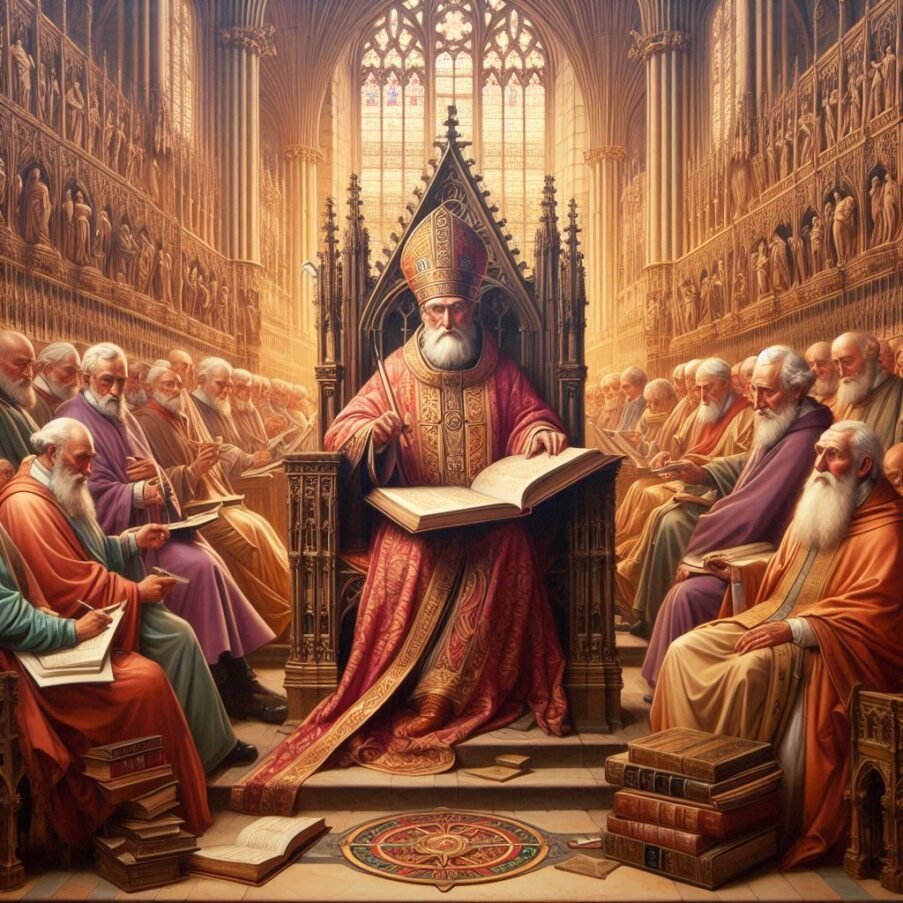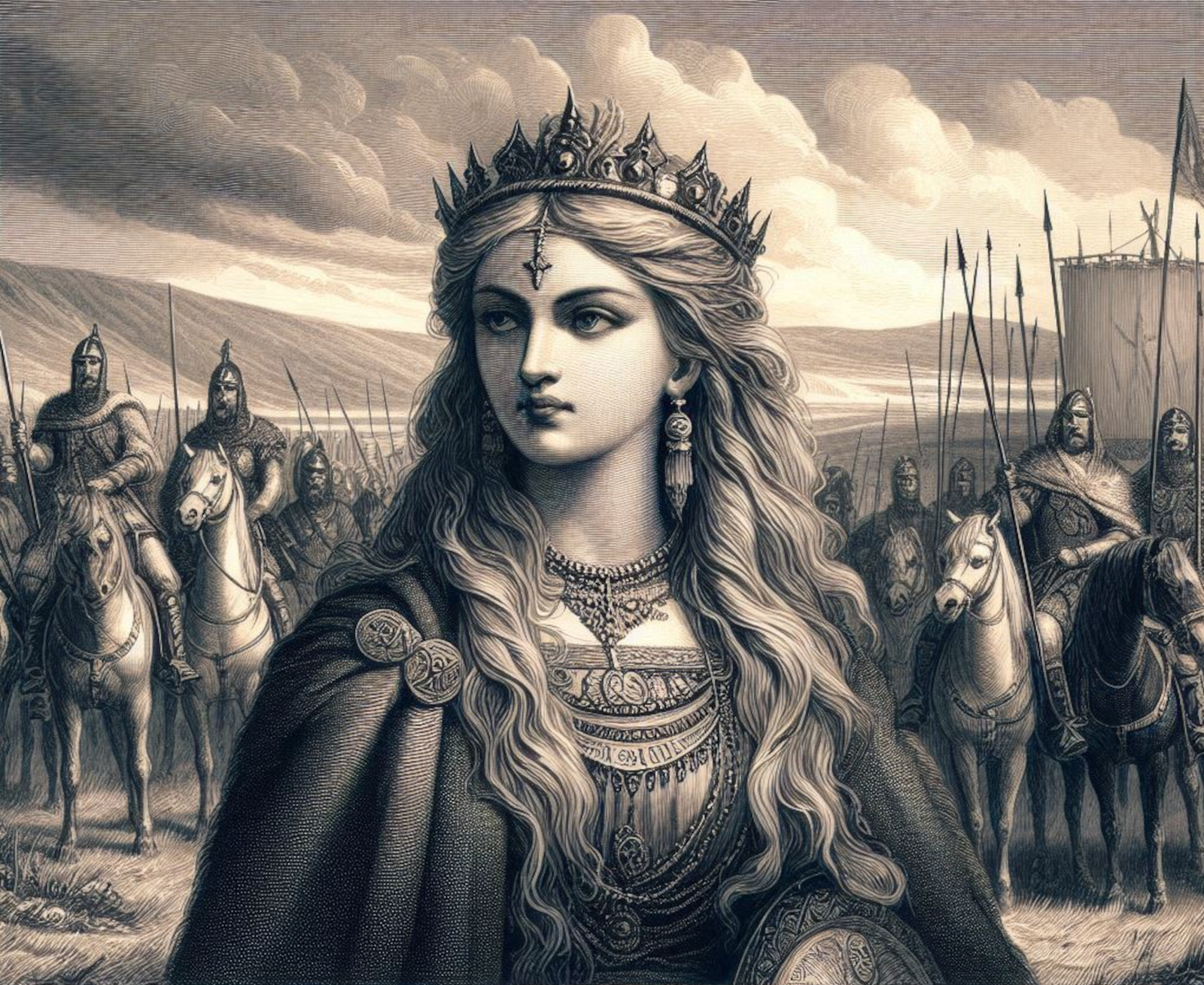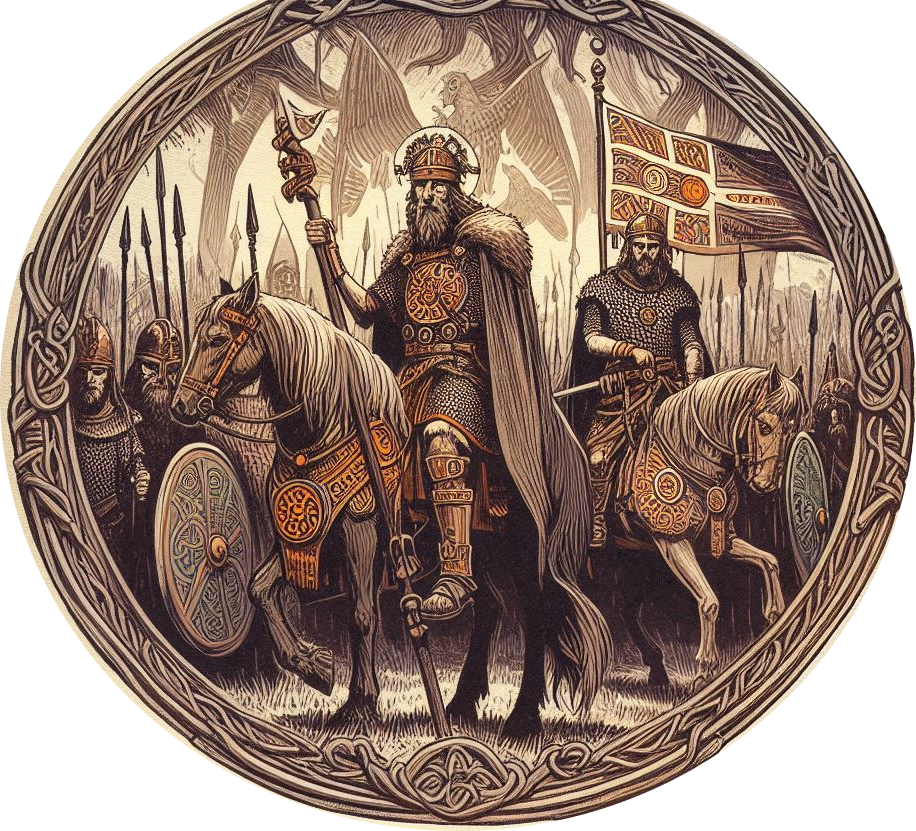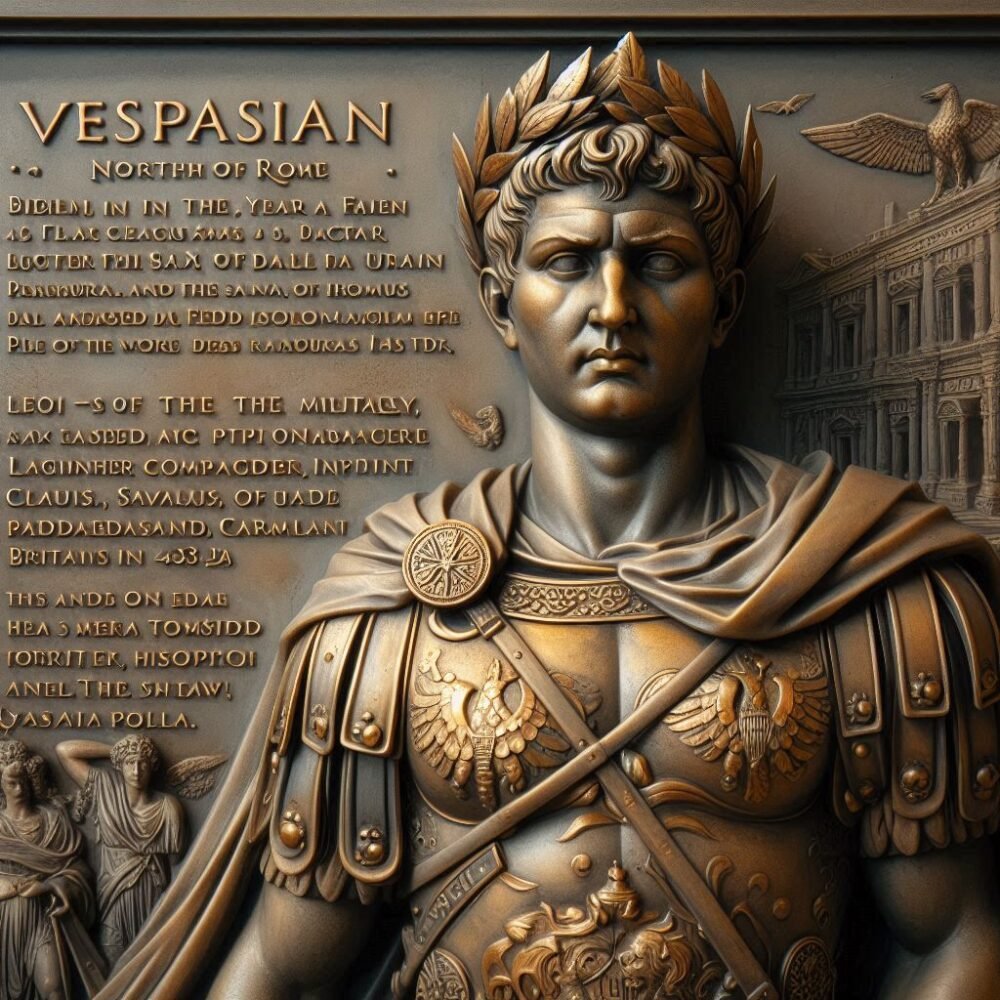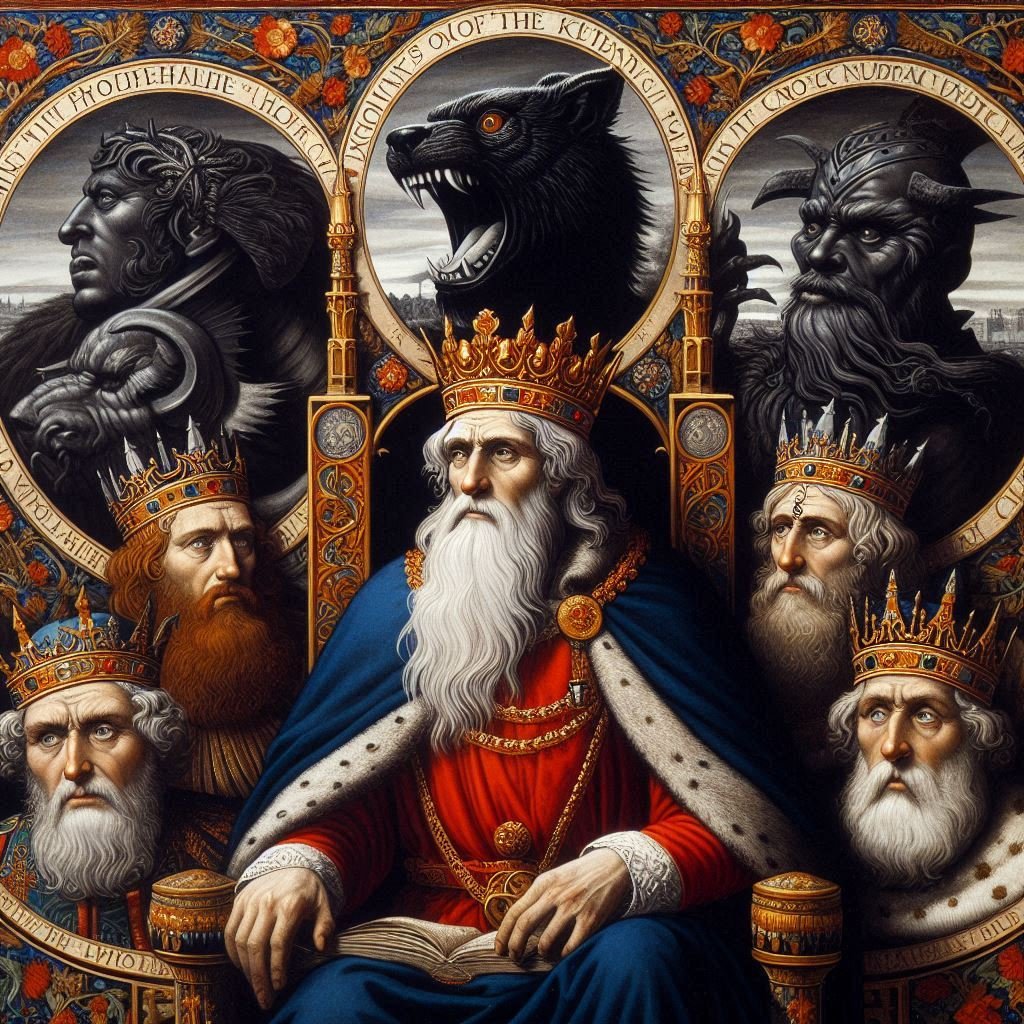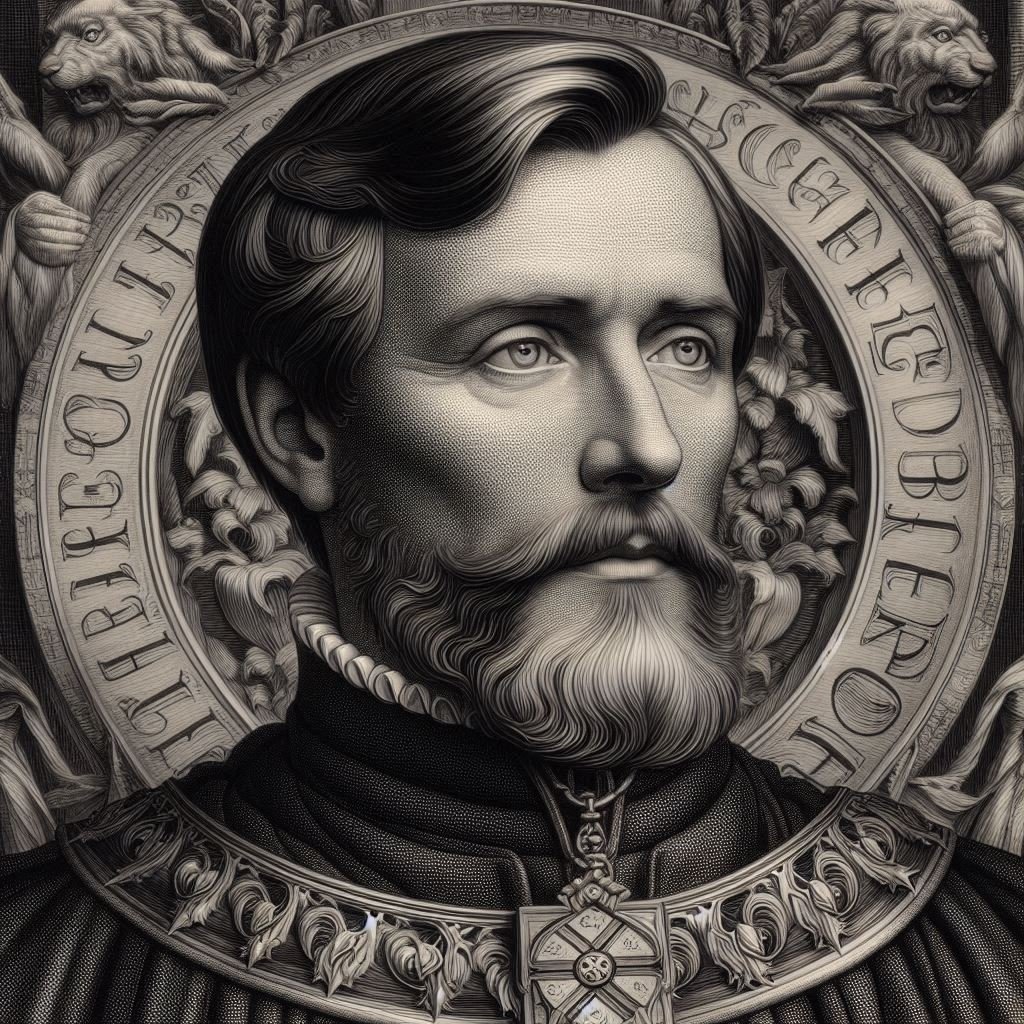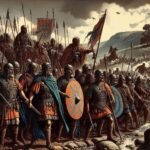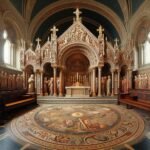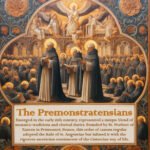Archbishop Lanfranc was a prominent figure in the 11th century, renowned for his role as a scholar, teacher, and ecclesiastical statesman. Born between 1005 and 1010 in Pavia, Italy, Lanfranc’s early life saw him excel in liberal arts in northern Italy, a region noted for its educational prowess at the time. His journey led him across the Alps, where he established himself as a teacher in France and later in Normandy. Around 1039, he became the master of the cathedral school at Avranches, where he taught for three years before embracing monastic life at the newly founded Bec Abbey.
Lanfranc’s intellectual acumen was evident as he became prior of Bec Abbey and later abbot of St. Stephen’s Abbey in Caen. His scholarly reputation grew, attracting students from across Europe, and his teachings were instrumental in shaping theological thought. In 1070, following the Norman Conquest of England, Lanfranc was appointed Archbishop of Canterbury by William the Conqueror, marking a significant chapter in his life and the history of the English Church.
As Archbishop, Lanfranc embarked on a comprehensive reform of the English Church, aligning it more closely with Roman practices and enhancing its organization and discipline. He was a staunch advocate for the separation of ecclesiastical and secular powers, a stance that helped define the relationship between the church and the state in England. Lanfranc also played a pivotal role in replacing native English bishops with Norman clergy, a move that furthered the integration of Norman and English institutions.
His legacy is multifaceted, reflecting his diverse roles as an educator, reformer, and advisor to the king. Lanfranc’s influence extended beyond ecclesiastical realms; he was instrumental in detecting a conspiracy against William the Conqueror in 1075 and securing the succession of William II Rufus after the Conqueror’s death. The Archbishop Lanfranc Academy, named in his honour, stands as a testament to his enduring impact on education and society.
Lanfranc’s theological contributions were significant and had a lasting impact on the Church. He is often remembered for his work in the field of ecclesiology, the study of the Church itself. One of his key contributions was the application of the Aristotelian distinction between substance and accident to explain the Eucharistic change, a concept that became a central point of debate in medieval theology. Lanfranc also introduced pre-Gregorian collections of Canon Law into England, which infused new vitality into English monasticism and ecclesiastical jurisdiction.
Moreover, Lanfranc was known for his efforts to reform the English Church and unite it under the primacy of Canterbury. His approach to theology was not marked by metaphysical speculation, but rather focused on practical applications of doctrine to ecclesiastical governance and discipline. This pragmatic approach helped to establish a clear demarcation between ecclesiastical and secular courts around 1076, an innovation that had profound implications for the structure of English law and governance.
His teachings and writings, though not as metaphysically sophisticated as those of his successor Anselm of Canterbury, were nonetheless regarded as authoritative and were used as textbooks in schools for a period. Lanfranc’s intellectual rigour and clarity in teaching and writing made complex theological concepts accessible to a broader audience, thereby extending his influence beyond the walls of the monastery or the church.
Lanfranc’s death on May 24, 1089, marked the end of an era, but his contributions to church governance, education, and the law have left an indelible mark on history. His efforts in establishing a clear demarcation between church and state courts around 1076, and his support for papal sovereignty while maintaining the church’s independence, are particularly noteworthy.
Lanfranc’s legacy is celebrated annually on his feast day, May 28, a reflection of his venerated status within the Catholic Church and the Anglican Communion. His life’s work, encapsulated in his reforms and teachings, continues to resonate, underscoring the profound influence he had on the religious and political landscape of medieval Europe.

